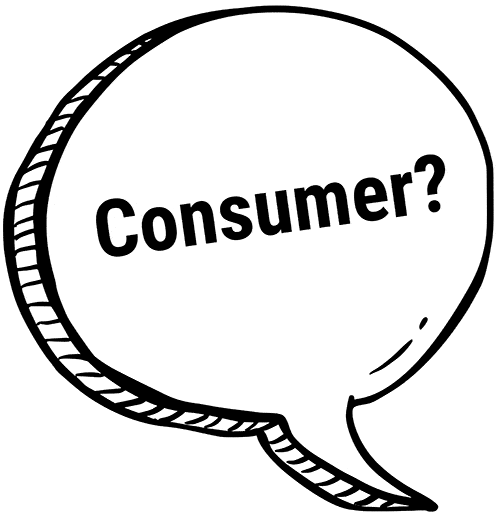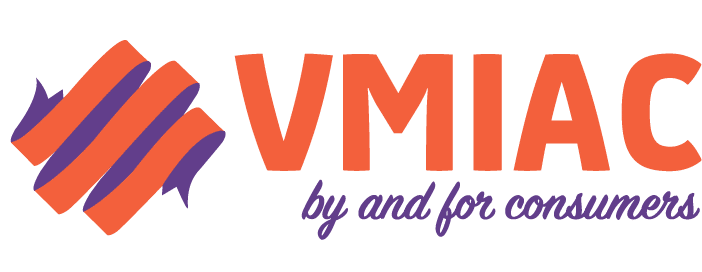VMIAC is run by and for mental health consumers.
The word ‘consumer’ is commonly used to describe people who’ve used mental health services. At VMIAC we use this word for practical purposes, so people understand who we represent. But we know there are many other ways to describe our experiences—and we respect each person’s choice.

Consumer is a common term used to describe people who have used mental health services as a patient or client.
Consumers at VMIAC
VMIAC welcomes any person who identifies as a consumer (or similar). Traditionally, the people who use our services have:
- Experienced mental health problems or emotional distress
- Been consumers of public clinical mental health services (inpatient and/or case management)
- Been consumers of community mental health services and/or the NDIS
- Tried to access the above services and been unable to do so
This group of people makes up around 3-5% of the population. Most of us, but not all, have experienced profound distress, trauma, violence and abuse, socioeconomic disadvantage, discrimination and breaches of human rights.
Mental health consumers are one of the most marginalised and oppressed groups in society today.
The word ‘consumer’
Is consumer the right word?
Some people think the word ‘consumer’ feels empowering, and other people really dislike it.
There are lots of other descriptive terms that are used instead of consumer: service user, patient, person with mental illness, person with lived experience, survivor, client, psychiatric survivor, expert by lived experience, person with neuro-diversity, voice hearer, ex-patient, participant.
Many of these terms have a long history and carry important meanings.
During 2019, as part of The Declaration Project, we surveyed many of us to find out what language people most prefer to describe us and our experiences.
We found that people have very different views. For every option, some people like it, some can live with it, and some dislike it.
Around 24% of us liked the term consumer, it ranked 8 out of 15 options
The most preferred language was to call ourselves “people with lived experience of”—however we have different views about describing our experiences. The four most preferred ways od describing our experiences included:
- Emotional distress
- Trauma
- Neurodiversity
- Mental health challenges

Most people told us that language use is very important to them, so we will continue to explore these issues for some time yet.
Read more in The Declaration
Complete the survey on language use
Where did ‘consumer’ come from?
‘Consumer’ came from our movement, not from the system.
In the 1980s a group of ex-patient activists met at an Alternatives conference in the US and agreed on the word ‘consumer’ to replace ‘patient’.
There was also agreement to use this language by local Victorian consumers in the 1990s.
Interestingly, the UK tends to use the term ‘service user’ instead.
People hoped the new language would improve our rights by giving the message that we can choose our own services. But our rights have not improved, and the term is increasingly criticised.
‘Consumer’ has now spread beyond mental health and is often used across the entire health system.
Want to use a different word?
It’s your life, so it’s your choice.
At VMIAC, we’re not tied to any single word or term. We often use the word ‘consumer’, but mainly for practical reasons so people know who and what we’re describing.
We understand that many of us use different language depending on the context: personal life versus work life, talking with the sector versus with other ‘consumers’.
Whatever we call ourselves, we ‘consumers’ have debated how to describe ourselves for decades. The one term we can all agree on is that we are ‘people’.
At VMIAC we recognise and support people to use their preferred language about themselves and their experiences.
